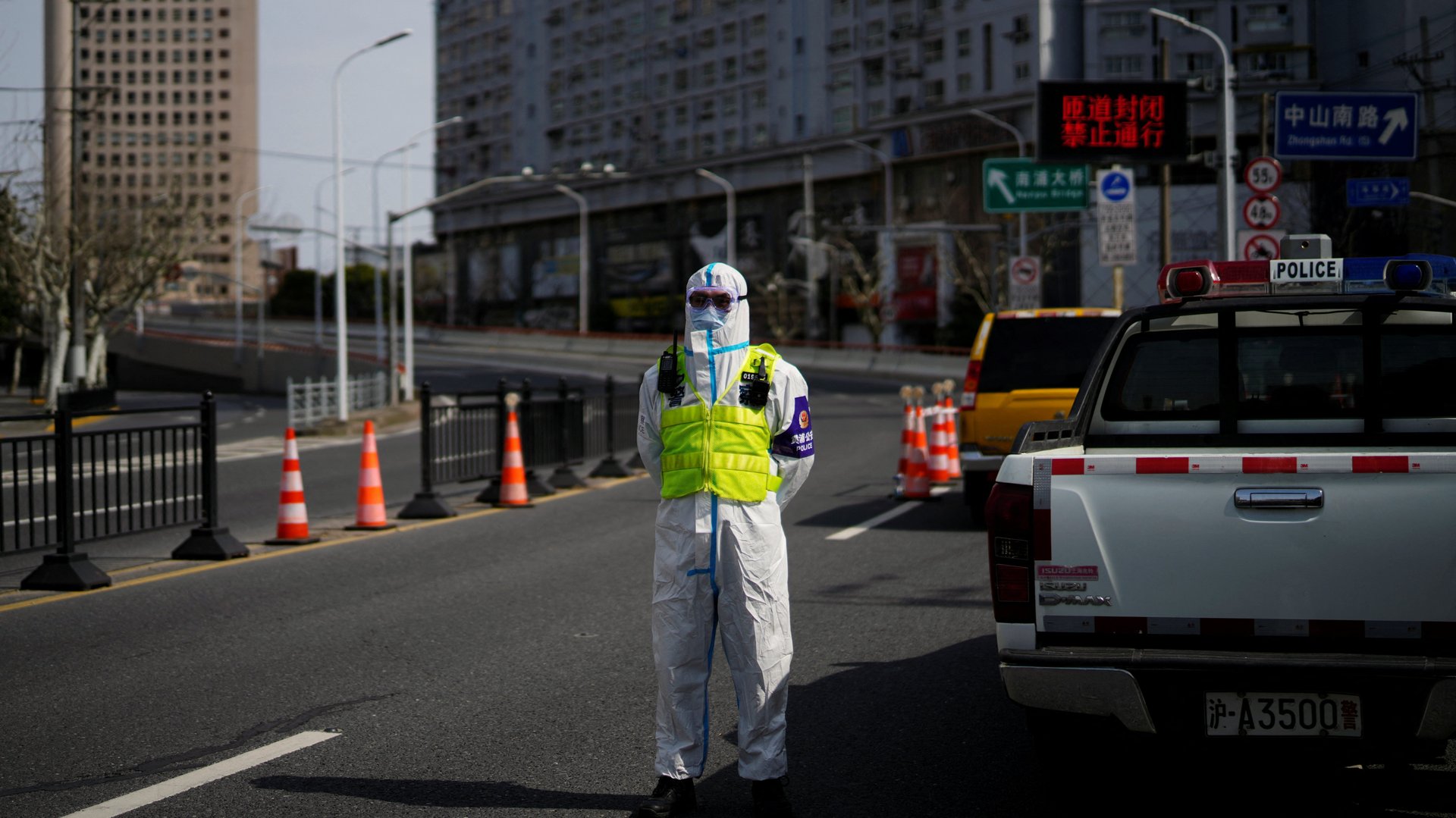Shanghai’s daily covid cases have surpassed the peak in Wuhan
It has been over two years since the covid-19 pandemic first broke out in the central Chinese city of Wuhan. But China’s latest outbreak is causing a surge in new daily infections, and raising fresh doubts about its zero-covid strategy.


It has been over two years since the covid-19 pandemic first broke out in the central Chinese city of Wuhan. But China’s latest outbreak is causing a surge in new daily infections, and raising fresh doubts about its zero-covid strategy.
On Tuesday (April 5), Shanghai, the country’s financial capital and its current epicenter of the pandemic, recorded 17,077 new local infections, surpassing the highest daily record of 13,436 cases that Wuhan reported on Feb. 12, 2020, according to Chinese health authorities and news outlet Caixin.
Overall, the country reported 20,472 new locally transmitted cases yesterday, with the rest of the infections mainly recorded in northeastern Jilin province. The new cases nationwide yesterday represent China’s highest ever new daily infections.
But with China’s nearly 90% (link in Chinese) primary vaccination rate for the 1.4 billion population, most of the current cases in China and Shanghai are mild. Of yesterday’s national infections, around 19,000 were asymptomatic.
Still, the rising infections in China have brought the effectiveness of its zero-covid approach, which entails mass covid testing and centralized quarantine for even mild cases, into question.
Shanghai has imposed partial lockdowns since early March, as have most cities in Jilin. But the measure hasn’t brought down the city’s cases which have continued to soar since the the city entered a two-stage lockdown on March 28, that was indefinitely extended yesterday. Meanwhile, videos of angry citizens protesting against lockdown and posts complaining about a shortage of food have been trending on Chinese social media, leading many to express their shock at the level of disorganization being seen in China’s wealthiest city. But so far, the government has maintained it needs to stick to so-called “dynamic clearance” approach.
Though the numbers are startling to many in China, where covid outbreaks were quickly eliminated until the emergence of the new more contagious variants last year. The numbers are still small compared to other countries. In the UK, the seven-day average was above 60,000 as of Tuesday, according to the British government.